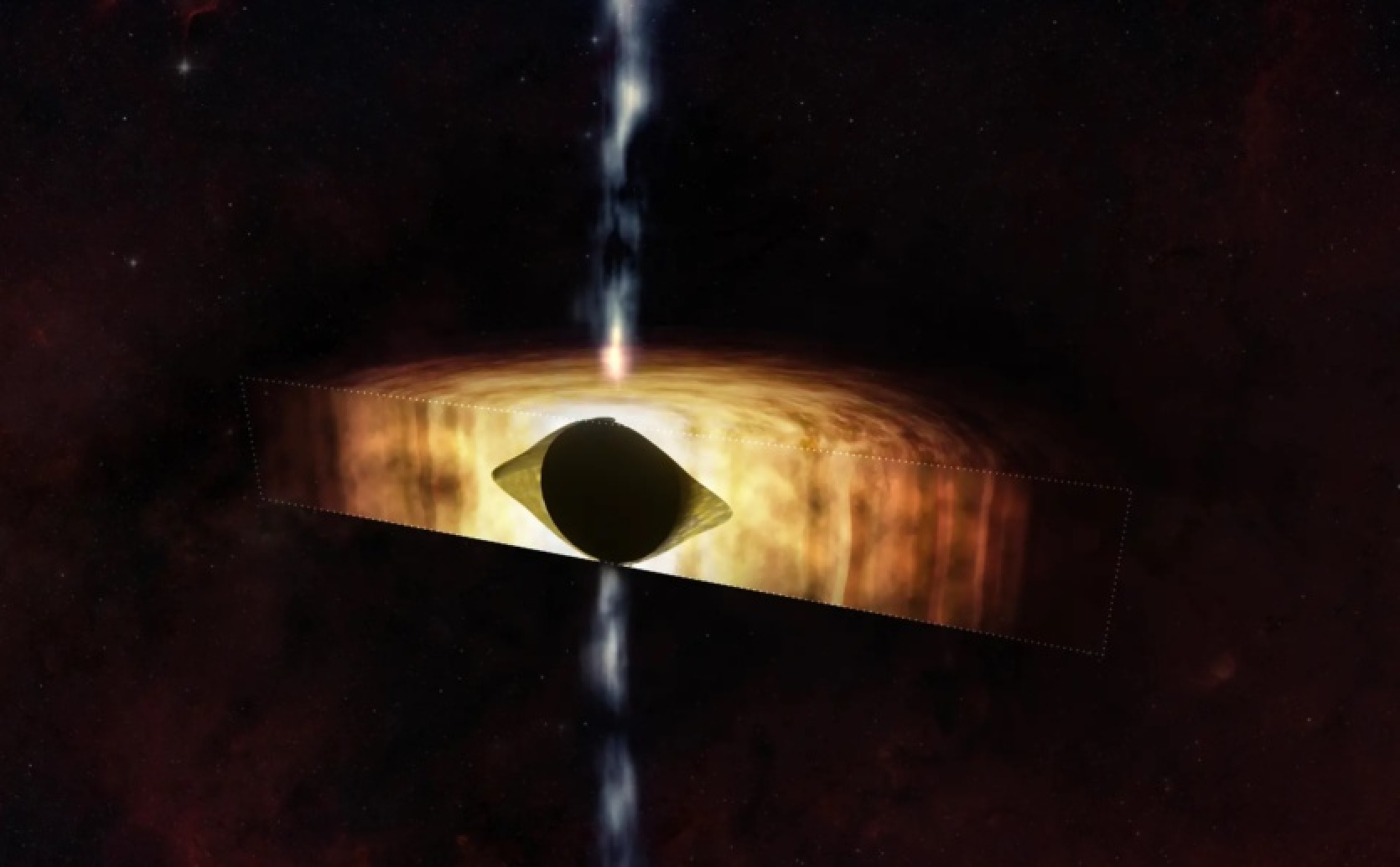An enormous monster lurks at the center of the Milky Way, and now astronomers have discovered that it spins so fast that it turns spacetime itself into the shape of a football.
According to Einstein's general theory of relativity, mass warps spacetime - the four-dimensional "fabric" that permeates the Universe (what we feel as gravity). This happens with any mass: you yourself are currently warping spacetime, but barely noticeably - it's another matter when it comes to extremely massive objects, such as black holes or entire galaxies. During such a process, strange things happen: galaxies can act as lenses, magnifying bright objects behind them and allowing us to peer further into space than usual.
Astronomers have now discovered that the supermassive black hole known as Sagittarius A* (Sgr A*) - weighing in at 4 million Suns and located at the center of the Milky Way - is doing some strange things to spacetime. The object is spinning so fast that if viewed from the side, it appears to transform spacetime around it into the shape of a football.
Astronomers used X-ray data from the Chandra telescope and radio data from the Very Large Array observatory to calculate the rotation speed of Sgr A*, based on the movement of material around it. Their study showed that the black hole has an angular velocity of about 60% of the speed of light and an angular momentum of approximately 90% of the speed of light.
Of course, reality doesn't transform without consequences. The rapid rotation of Sgr A* ejects a huge amount of energy, which can stimulate the outflow of matter around the black hole. Giant X-ray "smokestacks" above and below the plane of our galaxy indicate that Sgr A* was much more active in the past and may explosively erupt again in the future.
"While the black hole is quiet now, our research shows that it could deliver an incredibly powerful blow to surrounding matter in the future," said co-author of the study Anan Lu. "This could happen in a thousand or a million years, or within our lifetime."
The study was published in the Monthly Notices of the Royal Astronomical Society in January.
Source: New Atlas














Comments (0)
There are no comments for now